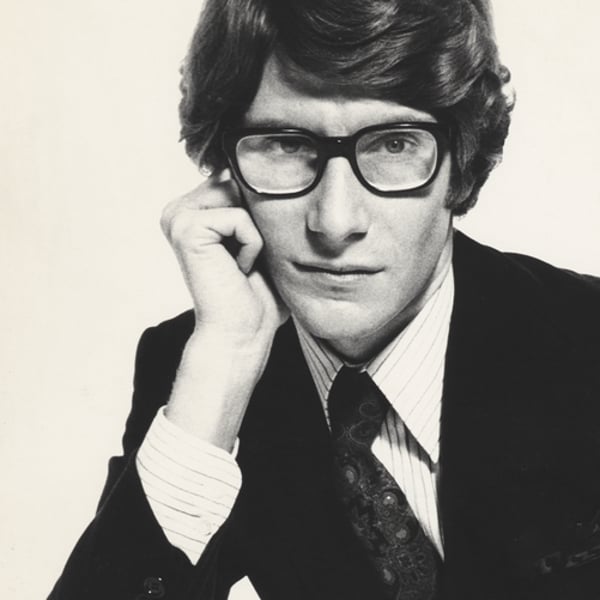Published
November 17, 2025
Who to recruit and how? How can the industry attract young workers? Are they really as lazy as they say? These questions worry the fashion industry. They were delivered at the Assises académiques de la mode organized by the Fédération Française du Prêt-à-porter Féminin, held on November 6 in La Caserne, in the 10th arrondissement of Paris.
It is, inevitably, a central question. As Pierre-Jacques Brivet, member of the board of directors of the Union française des Industries de la mode et de l'habillement (UFIMH) noted in his introduction: the fashion sector is eliminating jobs in France.
In an attempt to share solutions with recruiters and academic leaders through roundtables, speakers from a wide range of backgrounds came to share their ideas. The military, fashion, construction, all expressed the need to mentor young people, recruit them and retain them.
Treating young people appropriately must become… second nature
The first key, according to General Arnaud Goujon, head of the French army's Youth Recruitment Unit, lies in presenting yourself and embodying the message, in particular, speaking to young people in the right way. “Marketers see them as just stupid consumers; employers see them as lazy,” he says. “I see a generation whose ideals were thwarted from very early on. These are people who need a job that serves a purpose.” He points out that Generation Z, “extremely lucid”, is bored, tired of consumerism, the only thing that is really offered to them.
While the military has the strongest employer brand in the country, according to the general, it must go out and meet young people in person, by any means necessary. The territorial coverage that it has established allows it to serve 365,000 young people a year throughout the country.
The next challenge is to guide interested parties, 90% of whom hope to join special units, while the army needs professionals with a wide range of skills, from construction to combat, and from communications to engineering.
To attract new employees, a company or institution must take advantage of its distinctive character, says Arnaud Goujon. If this is not possible, then the company must offer compensation commensurate with the positions offered and demonstrate flexibility, not least because new workers seem naturally inclined to leave an employer and then return.
For Florence Diesler, Director of Skills and Training at the Confederation of Craftsmen and Small Building Enterprises (CAPEB), young people are looking for well-paid, meaningful work that plays a role in their immediate communities. They also need an employer who really takes them into account. “Artisans and young people are a winning couple when businessmen do not have preconceived ideas about young people,” he emphasizes, adding that the opposite is also true.
The key: interact with all students and students
Above all, young people must be aware of the multitude of professions that exist in the sectors that interest them. Without this, a random orientation rarely leads to a positive result, notes Florence Diesler. Hence the need to reach schoolchildren and students. This is stated by Jasmine Manet, founder and executive director of Youth Forever, an association that works to promote intergenerational cohesion within organizations. In his speech at the Assises académiques de la mode, he points out that secondary school students, who are already asked to choose their path, generally only know the professions of their immediate circle.
Therefore, the role of career guidance organizations is essential. Through their actions, they can allow young people to consider paths that were previously unknown to them. This knowledge is the first means to counteract social determinism, which leads to a cruel lack of diversity in certain professional sectors. For this reason, Jasmine Manet calls on industry professionals to interact with students and students (even if only once a year) at a time when social inequalities continue to weigh heavily on young people's access to employment.
“As many types of young people as there are young people”
Being aware that not everyone has access to the same resources and contacts is key to solving the hiring crisis, in which similar profiles accumulate. These are the profiles that seem to make up Generation Z. Jasmine Manet criticizes this label: “The terms 'Gen Z' or 'youth' often refer to young urban graduates; but youth is not just that! There are as many types of young people as there are young people.” An emerging idea: Partly because training and employment are only accessible to a segment of the population, hiring is so complicated in the fashion industry.

This opinion is shared by Anne Chutczer, executive director of the Atout Jeunes Universités association, which links young university students from peripheral areas with companies. “Young people do not have the same access to the networks at their disposal,” he emphasizes. “And not all young people have the same aspirations, depending on their origin.” An advocate of hiring without a CV, such as Flora Nioré, Senior Director of Talent Acquisition, Diversity and Inclusion at the PVH Group, explains: “The idea is not [just] “Settle for the CVs of candidates who look like you.”
Between constant commitment and changing priorities
This work to combat inequalities will benefit companies. More young people could enter a position that suits them, a key factor in employee retention, according to Camille Devailly, HR director at Jonak: “Jobs in retail should be a career choice, not a stopgap while waiting for something better. I don't think the commitment of new generations is less important than that of older generations.” For her, the search for transparency and a “no nonsense” approach is a decisive lever. An opinion shared by Arnaud Goujon: “Young people need to clearly understand who we are. Because the key is to manage disappointment.”
While the commitment of workers of all generations remains constant, it is accompanied by a clear change in priorities among young people. Jérémie Pelletier, co-director of the Jean Jaurès Foundation, explains that sacrifice at work is not an option for most young people: they shape their careers around their life outside of work, and not the other way around. Jérémie Pelletier also points out that, in general, young people expect to quickly reach a position of responsibility, but insists that an organic career path is still important.

According to Jérémie Pelletier, one of the most important demands of the new wave of workers is the guarantee of better working conditions, since they feel that there is a lack of respect and recognition. This concern now prevails over environmental or social issues such as the fight against discrimination, which has predominated in recent years.
This article is a machine translation.
Copyright © 2025 FashionNetwork.com All rights reserved.












